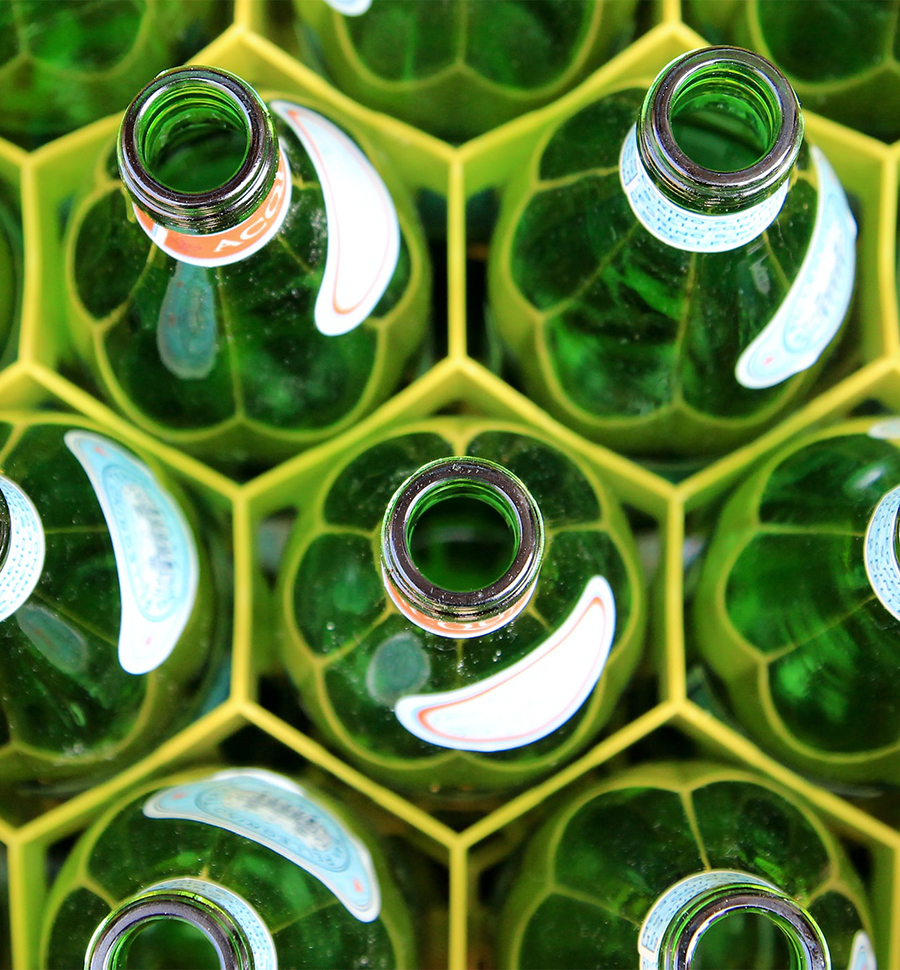June 30, 2021 Industry news
For Welsh readers, many will remember the old Corona pop bottles which you could return to the Corona pop man’s van in exchange for 10p in the 1980s. Across the Middle East, you can still have your Pepsi bottles refilled or returned to the driver of a float. If you’ve been to a Christmas market in Germany, the glass mug you purchase for your Glühwein refills can be returned at the end of the night for a refund. All of this is to encourage recycling and reuse.
In the UK, the Government resurrected the idea of financially incentivising recycling, in order to move towards a greener future, where NetZero targets are met and the circular economy is a reality, not a buzzword.
June 2021 saw the end of major consultations into deposit-return schemes and extended producer responsibility (EPR), which aims to hold manufacturers responsible for the entire life-cycle of the products and packaging they make, from creation to final reuse or disposal. Both consultations are likely to result in legislation that will relaunch deposit return schemes across the England, Wales and Northern Ireland.
But Scotland have made the first move, having already passed legislation in May 2020 with the aim of rolling out a network of reverse-vending machines by July 2022.
The reverse-vending machine network will consist of large compacting machines – likely situated in supermarket carparks – into which consumers will push their empty drinks bottles and containers.
On returning the bottles and containers, a barcode on the bottle will be scanned, identifying the product and refunding a deposit to the consumer that is hardcoded into the item’s price.
Although the initial plan for the reverse-vending machine network may be postponed to 2023 because of the coronavirus pandemic, the enthusiasm for deposit-return schemes is undiminished, among policy makers and consumers alike.
In essence, DRS is a broadly popular public policy that will not cost the government anything because the “producer/polluter pays” model will fund the necessary investment to kickstart the programme.
An alternate path – DDRS
The conclusions from the recent consultation process for DRS and EPR for England, Wales and NI will be shared towards the end of 2021, and there is wide speculation that the UK Government may recommend an alternative hybrid solution.
In May 2021, Resource Futures published a report on the impact of a digital deposit-return scheme (DDRS) and identified more than £3.4bn in cost savings over an 11-year period, compared with the reverse-vending machine model.
A DDRS would work by seamlessly integrating a deposit process with the existing kerbside recycling that households already do as part of their council waste collection.
Instead of chucking all the bottles and drinks containers straight into the recycling bins, consumers will need to scan a unique barcode on a product’s packaging and a unique barcode on their bin with a mobile device, in order to redeem their deposit.
GS1 UK’s role
GS1 UK’s unique identifiers are used on 90 per cent of all branded food and beverage products sold in the UK, typically appearing below your average barcode as a Global Trade Item Number (GTIN).
The scheme administrators for Scotland and the rest of the UK are actively considering mandating the use of GS1 identifiers in order to ensure the DRS programmes, and reverse-vending machines can operating using identifiers that are already actively used in the market, in a future-proofed process.
As an organisation, GS1 UK is in the process of working with our members to map a high-level process for DDRS. We are interviewing key stakeholders and hosting workshops with our members to refine the process and assess the feasibility of a scheme with regards to data management and labelling.
To power a DDRS solution, there will likely be the need for serialised product identifiers to combat fraud in the system, where multiple deposits could be claimed from repeated redemption of the same container.
A serialised identifier will tell you that the recycling method has logged a particular brand and size of soda bottle, but the specific instance of that type of product, one unique bottle out of potentially millions. The healthcare industry has been using GS1 serialised identifiers to identify packets of medicines and implantable medical devices for some time, so there is a tried and tested use case for the retail industry to learn from.
GS1 UK is proud to be leading the work to map the high-level process of DDRS as part of the DDRS Industry Working Group. We are hoping to bring clarity to the various stakeholder groups in order to drive the green agenda in the UK.
We are always looking for opportunities to connect with other membership organisations who share the agenda of circular economy, sustainable packaging and citizen engagement, in order to really shift the dial on recycling rates and propel the UK up the ranks of global recycling nations.
